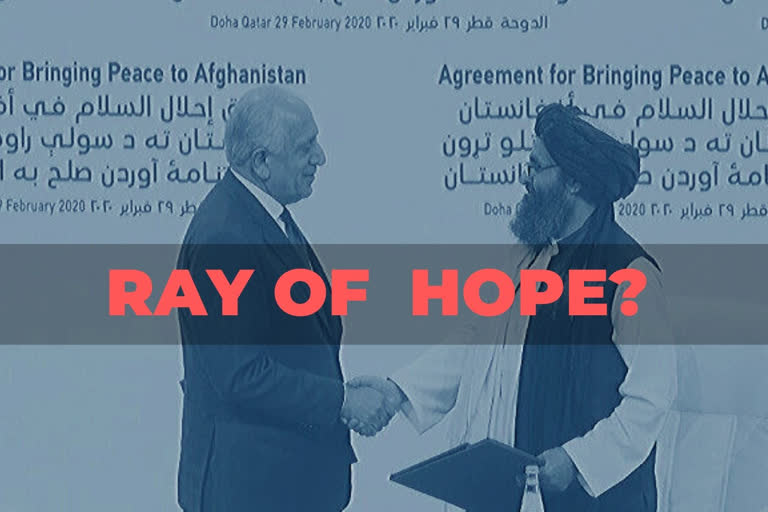Hyderabad:In 2001, the United States launched operation 'Enduring Freedom' in Afghanistan, to launch a war for attaining peace. The US has initiated this operation with the help of NATO nations, to put an end to the al-Qaeda and the Taliban. Though Osama Bin Laden had been assassinated during Obama’s regime, leaving al-Qaeda without a head, the Taliban continued their terrorist activities.
While the former US Vice President Dick Cheney had said that the Afghan war was unlike the Gulf War and that it would go on relentlessly, the US recently made a pact with the Taliban, putting an end to the 18-year old bad blood.
The agreement signed by the US and Taliban representatives in Doha, is giving rise to hopes of a lasting peace. The peace deal was signed on four main issues, where the Taliban guaranteed that Afghanistan will not be used by any of its members, other individuals, or terrorist groups to threaten the security of United States and its allies. The US agreed to reduce its number of troops in the country within stipulated time. Beginning March 10, discussions between several parties with the ultimate agenda of establishing peace, charting down the country’s future roadmap and preparation of joint mechanisms for its implementation are some of the key issues in this agreement.
Afghan President Ashraf Ghani announced that he will not accept the release of 1,000 Taliban prisoners as part of this deal. Nobody could predict what the peace deal holds for Afghanistan, where bomb blasts and Kalashnikov firings are a norm.
Earlier in July 2019, the US President Trump had said that he could have had Afghanistan wiped off from the face of earth but he did not intend to kill 10 million people. Though India has been lamenting about the rise of terrorism, the US paid no heed to its fears. It decided to act only after the flames of terrorism engulfed the US in the twin towers attack.
The erstwhile President George Bush termed the war as a pursuit to conquer a latent enemy. In the following 2001 war, hundreds of innocent citizens were killed in Kabul, Kandahar, Jalalabad and Herat. Though the United Nations had signaled the end of Afghan War in 2014, 717 civilians were killed at the hands of government and foreign military forces in the first six months of the war and 531 civilians died in Taliban attacks.
